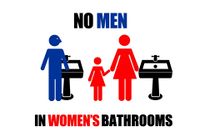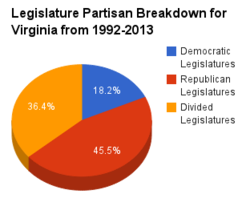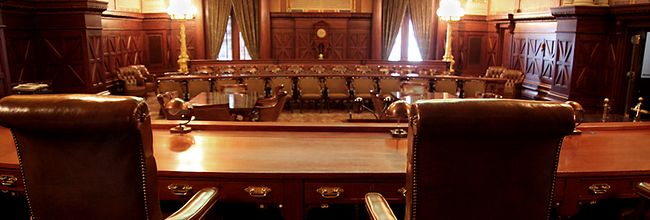Ballotpedia's List of the Top 10 Elections to Watch in 2015
October 22, 2015: From a potentially game-changing set of recall elections in Colorado's second-largest school district to San Francisco's AirBnB Initiative; from the riveting contest over majority control of the Pennsylvania Supreme Court to what may end up being two Republicans duking it out for the office of attorney general of Louisiana, Ballotpedia's staff has scoured the country to find the 10 elections to watch in November 2015.
These elections provide a barometer of the public’s general attitudes towards parties and policies and will inform and instruct both electoral and ballot campaigns at all levels as we head into 2016.
- See also: Election results, 2015
#10: Seattle schools
Seattle School Board:
Four of seven seats on Seattle's school board are up for election on November 3. The board has been impacted by a series of state education funding disputes between state legislators and local teachers, as well as a potential move toward a partially appointed school board. In district-specific bills, Rep. Eric Pettigrew (D-37) and Rep. Sharon Tomiko Santos (D-37) have supported attempts to reform the district's board and size. Both legislators cited concerns over the achievement gap between district averages and students of color in the district. Meanwhile, local teacher protests were part of the statewide discourse on education funding. Of the four seats on the ballot, Districts 3 and 6 are the most competitive, with four and three candidates, respectively, vying for the two seats.
#9: Governor of Louisiana
Louisiana's close gubernatorial race will kick off the 2015 election season on October 24, 2015. A total of nine candidates will face off in October, with a runoff scheduled for November 21, if necessary. Louisiana is one of three states to use a blanket primary, or top-two system, which allows all candidates to run and all voters to vote. However, only the top two vote-getters move on, regardless of party affiliation, to the general election. In Louisiana, the runoff general election is only required if no candidate receives at least 50 percent of the primary vote. If the runoff election is not needed, the race is decided by one election, which serves as both the primary and the general election.[1][2]
With current Governor Bobby Jindal (R) termed out, the race is up for grabs. The candidates are evenly divided, with three Democrats, three Republicans and three independent candidates in the running. One of the Republicans, David Vitter, is polling well despite being named in the DC madam scandal in 2007 and being accused of shirking debates. The latest polls indicate Vitter will win in the primary but lose to Democrat John Edwards in the runoff. If this scenario occurs, it will flip the seat for Democrats and break the Republican trifecta currently in place.[3][4][5]
#8: HERO Referendum in Houston
Houston HERO Referendum, Proposition 1:
Houston electors will give the up or down vote on the city council's anti-discrimination ordinance known as HERO. The ordinance drew national attention during a lawsuit over the veto referendum signatures by igniting debates about religious liberty and free speech. The city council, with Mayor Annise Parker’s blessing, passed the HERO ordinance by a vote of 11-6 in May 2014. Now, it's voters' turn to give their say. The ordinance, which is on the ballot as Proposition 1, would ban discrimination based on sexual orientation and gender identity—criteria not covered by federal anti-discrimination laws—especially "in city employment, city services, city contracting practices, housing, public accommodations, and private employment." The ordinance was designed to exempt religious institutions and organizations from compliance.[6][7]
Supporters of the HERO ordinance, who will vote "yes" on Proposition 1, believe it is a broad anti-discrimination measure that is a step in the right direction for the city of Houston. Opponents fear the ordinance's provisions concerning transgender people could harbor sexual predators by permitting men to enter women's restrooms. Critics have called the HERO ordinance the "Sexual Predator Protection Act." The issue of the HERO ordinance has also been brought up in the context of the Houston mayoral election, which is taking place on the same day as the vote on Proposition 1. Only one of the seven major candidates has come out against the ordinance and Proposition 1.[8][6][9]
#7: City Council of Seattle
Seattle City Council:
All nine Seattle City Council seats are on the line in the city's first election featuring a mixture of by-district and at-large seats, marking a significant moment in the city's political history. The races have been hotly contested from the beginning, with 47 candidates filing to run for just nine seats in the primary election. This field was over twice the size of Seattle's previous two election cycle primaries combined.[10]
Incumbent council members elected in 2011 and 2013 were eligible to file in 2015 in the districts where they hold residency. Only six incumbents chose to do so. One incumbent, Jean Godden, was knocked out of the race during the primary election. There will be at least four new members on the council following the 2015 elections.[11] With some of the longest commute times and most expensive housing prices in the country, transportation and affordability have been key issues in Seattle's 2015 election cycle, with each candidate offering a variety of different solutions to the problems.
One of the most-watched races in this election cycle has been the one in District 3, pitting incumbent Kshama Sawant, a member of the Socialist Alternative Party, against challenger Pamela Banks. Sawant, who was elected to the city council in 2013, has continued to emphasize her beliefs about class conflict and has been an outspoken proponent of raising taxes on the wealthy. Banks, who is running on a platform of improving public safety—an area she believes Sawant has largely ignored—criticized her opponent for missing council meetings and not "doing the work of government." As of October 12, Sawant had outraised Banks $384,820 to $324,760, with 38 percent of her contributions coming from out-of-city donors, compared to Banks' 13 percent.[12]
#6: Ohio's Issue 3
| Voting on Marijuana | |||
|---|---|---|---|

| |||
| Ballot Measures | |||
| By state | |||
| By year | |||
| Not on ballot | |||
|
Ohio Issue 3:
Ohio could become the fifth state to legalize marijuana if voters approve Issue 3 in November. The measure would legalize the medical and recreational use of the drug and create 10 facilities, known as Marijuana Growth, Cultivation and Extraction (MGCE) facilities, with exclusive commercial rights to grow marijuana. This last point—the creation of the 10 facilities, which would be owned by private investors who contributed to the campaign—has caused significant controversy, leading some voters who support marijuana legalization to say they will not be voting in favor of the measure. Many fear Issue 3 creates a monopoly benefitting the owners of the 10 MGCE facilities.[13][14]
Although the term monopoly has been used by opponents, Ballotpedia's analysis concludes the measure could create an oligopoly instead. Regardless, the measure caused enough tumult for the Ohio State Legislature to get involved, referring a competing measure to the ballot, Issue 2. If it passes, Issue 2 would require voters to approve two questions pertaining to citizen initiatives establishing economic monopolies. Ohio Secretary of State Jon Husted (R) has said Issue 2 would invalidate Issue 3 if both are approved in November. Supporters of Issue 3 will likely take the issue to the Ohio Supreme Court, if it comes to that. Whatever the outcome, Issue 3 will set the tone for 2016, when voters may see more marijuana legalization measures on the ballot than ever before.[15][6]
#5: Attorney General of Louisiana
Louisiana Attorney General:
Louisianans will also vote for their next attorney general on October 24, using the same blanket primary system as that employed during the gubernatorial election. However, unlike the governor's race, this one is all about the Republicans. Though two Democrats are running, neither seem likely to advance. Based on recent polling, the real battle appears to be between incumbent Buddy Caldwell and one of his two Republican challengers, Jeff Landry.[16]
Landry, whose campaign slogan is "stop the Buddy system," said the attorney general's office is bloated and criticized Caldwell for hiring expensive out-of-state attorneys to represent the state. He also accused him of corruption, saying, "The fact that I am on the ballot should speak volumes to the grade I would give him. When an incumbent is polling in the numbers that the current attorney general is polling in, he's in for a real difficult race. We're going to end the cronyism, the nepotism and the corruption going on in that office." Caldwell fought back, saying, "All of my lawyers have delivered record recoveries for the state without costing the taxpayer a dime. The 'Buddy's Buddies' system is working."[17][16]
#4: Virginia State Senate
Virginia State Senate:
The partisan makeup of the Virginia State Senate hangs in the balance this November, and just one seat will determine whether Democrats take control of the chamber or Republicans maintain a majority. Republicans currently hold a two-seat (21-19) lead in the state Senate, which is 5 percent of the 40 seats up for election in 2015. Republicans are also in control of the House of Delegates by a margin of 67 to 33. The party hopes to retain the state Senate so that they can control Gov. Terry McAuliffe's (D) legislative agenda and the committees.[18]
Since Lt. Gov. Ralph Northam (D) can break ties on most issues, Democrats only need a net gain of one seat in November to take control of the state Senate.[18] In 20 of the 40 districts up for election in 2015, there is only one major-party candidate running for election. A total of 10 Democrats and 10 Republicans are guaranteed election, barring any unforeseen circumstances. Eight races have been singled out as critical in determining the balance of the chamber. Of these eight, six feature incumbents—three Republicans and three Democrats.
#3: AirBnB Initiative in San Francisco
San Francisco Proposition F:
Voters in San Francisco will be casting ballots on Proposition F, also known as the Airbnb Initiative. The measure, which has become the most contentious on the city's ballot, would drastically curtail the business of high-flying startup Airbnb by imposing restrictions and allowing the city to fine online hosting websites. Airbnb lists more than 5,400 San Francisco homes and rooms as temporary lodgings, so it's no surprise the company has spent over $8 million campaigning against Prop F. In stark contrast, supporters have spent just over $354,000.[19][20]
Prop F supporters argue the city needs enforceable restrictions on the industry. They also argue that the unregistered, short-term rentals operating in the city result in illegal competition with the hotel and vacation rental industry by avoiding taxes and important city codes. Opponents, on the other hand, argue that private, short-term rentals allow additional tourism in the city for people who could not otherwise afford it and in areas that would otherwise be off the tourism grid. They also argue that the industry provides revenue for the city and a method for residents to make money through renting their property. In July 2015, polls indicated 47 percent of respondents supported the measure, with 8 percent undecided. By the time September rolled around, voters had changed their positions drastically, showing a 15.5 percent increase in opposition to Proposition F, with "no" votes outweighing "yes" votes by 16 points.[20][21][22][23]
#2: Pennsylvania Supreme Court
Pennsylvania Supreme Court:
A historic election is in store for voters in Pennsylvania, who will cast ballots to fill three vacant seats on the state supreme court. It has been more than three hundred years since the panel had three vacancies, and those were filled in 1704 by the British monarch, Queen Anne. This is also the most competitive supreme court race the commonwealth has seen since 2009, as court elections in 2011 and 2013 were uncontested retention elections for incumbent justices.[24] Stiff competition often comes with a hefty price tag, and this race is no exception. As of mid-September, the Democratic candidates had raised a combined $5.3 million, while the Republicans had amassed about $1.4 million.[25]
Three Democrats, three Republicans and one independent candidate are vying for the three spots. Democrats need to win two of the seats to flip the partisan balance in their favor. The court's partisan makeup is currently 3-2 in favor of Republicans, with two vacancies. The lone incumbent on the 2015 primary ballot, Correale Stevens (R), was appointed to the court in 2013 and sought election to a full 10-year term. However, Stevens was defeated in the Republican primary on May 19.[26][27] With three of seven seats on the ballot in 2015, the outcome of this election could not only change the partisan makeup of the court, but also impact future decisions. Robert Morris, chair of the Pennsylvania Bar Association's Judicial Evaluation Commission, has stated: “This will change the court in ways we can't predict. Three of seven is a lot of members. Depending on how those justices view the issues, it could change the outcome of a lot of cases.”[28]
#1: Jefferson County Schools in Colorado
Jeffco Public Schools District:
As if one election isn't cause for excitement in Colorado's Jeffco Public Schools, two elections will appear on the ballot on November 3: a general election and a recall election. As a result of these two simultaneous elections, the entire school board is up for grabs in the state's second-largest school district. The recall will attempt to remove the conservative-leaning majority bloc on the board, which represents Districts 1, 2 and 5. Of the two seats up for regular election this year, neither incumbent filed to run for re-election, which guarantees two newcomers will join the board, representing Districts 3 and 4. If all three majority bloc board members are recalled, the district will see an entirely new board in the wake of the November election, something that has never before happened in the district.[29]
In the year leading up to the election, the school district attracted national attention after being rocked by controversy over the implementation of teacher merit pay and accusations of curriculum censorship, wasteful spending and a lack of transparency by the board. The recall petition was filed by Jeffco United for Action. The group accused the majority bloc of attempting to censor A.P. U.S. history classes, pushing out over 700 district educators due to their new policies, wasting "millions of taxpayer dollars," violating open meeting laws, limiting public input at board meetings, bullying students and parents, and releasing private student information without consent.[30]
In response, all three board members highlighted what they saw as positive changes they helped bring about in the district, including raising teacher salaries, making union negotiations transparent, providing free full-day kindergarten to families in need and bringing greater equality to the process by which its schools are funded. The waters between the recall election and the general election are becoming increasingly muddied; candidates running in the general election have come out either in support of or in opposition to the recall and, by association, the reforms that inspired it.[31][29]
Honorable mentions
- Tacoma $15 Minimum Wage Measure, Initiative No. 1: Voters in Tacoma, Washington, are the next to decide whether or not to increase the city's minimum wage to $15 per hour. If approved, the initiative would immediately impose a $15 per hour minimum wage on all businesses that have annual gross revenues of $300,000 or more. The initiative would also establish cost-of-living increases each year based on increases to the consumer price index in the Seattle-Tacoma-Bellevue area. The city council put a $12 per hour alternative measure on the ballot. The mayor, city council and head of the city's chamber of commerce all oppose the $15 per hour measure.[32][33]
- Kentucky gubernatorial and lieutenant gubernatorial election, 2015: With incumbent Gov. Steve Beshear (D) termed out, a race that had been labeled leaning Democrat just a few days ago has been reinvigorated by a new round of RGA spending. Despite having pulled funding two weeks prior, the RGA made a $1 million ad buy for the final two weeks of the campaign between GOP candidate Matt Bevin and Democratic Attorney General Jack Conway. Bevin is looking to become only the second Republican governor of Kentucky in the last 44 years, in what WVXU political reporter Howard Wilkinson calls "the only really competitive gubernatorial race in the country."[34][35][36][37]
- Maine "Clean Elections" Initiative, Question 1 (2015): The Maine Clean Elections Act (MCEA), which was enacted via a 1996 ballot measure, was designed to provide full public financing to candidates for the positions of governor, state representative and state senator in Maine. This year's Question 1, if approved by voters, is designed to strengthen the MCEA by increasing funding from $2 million to $3 million for the Maine Clean Elections Fund. The additional funding would come from eliminating $6 million in “low-performing, unaccountable” corporate tax exemptions, deductions and credits “with little or no demonstrated economic development effect." The measure would also increase penalties for violating campaign finance disclosure rules, allow candidates to qualify for supplemental funds, and require disclosures regarding gubernatorial inaugurations and transitions.[38][39][40]
- Indianapolis mayoral race: Local businessman and Iraq War veteran Charles Brewer (R) faces off against former U.S. Attorney Joseph Hogsett (D) to determine the next mayor of Indianapolis. Republicans may have their work cut out for them in their bid to hold on to the mayor's office for another four years. Prior to the primary election in May, Hogsett had already raised over $2.4 million. Brewer, by contrast, had raised about $670,000. A substantial chunk of that cash—$400,000—came from outgoing two-term mayor Greg Ballard (R).[41] Despite this gulf in fundraising, Hogsett still faces an uphill battle. Republicans have held a tight grip on the office of mayor in Indianapolis since the late 1960s, barring only Democrat Bart Peterson's tenure from 2000 to 2007.[42]
- Mississippi Initiative 42 and Alternative 42: For the first time in history, Mississippi voters are faced with deciding between an initiative referred by the people and a competing one from the state legislature. The measures, which both address different methods by which to provide support for public schools, have been the subject of lawsuits due to their confusing nature and convoluted wording. Voters will be faced with two questions. The first question will ask them to choose between "either measure" or "neither measure" becoming law. Next, they will be presented with the actual measures, which they can vote for or against, regardless of their answer to the first question. If a majority chooses "either measure," then the measure from the second question with the most votes will become law, so long as that measure also receives at least 40 percent of the total number of ballots cast in the election. If a majority chooses "neither measure," then neither amendment will become law.[43][44][13][45]
See also
Footnotes
- ↑ National Conference of State Legislatures, "State Primary Election Types," accessed October 19, 2015
- ↑ Fair Vote, "Congressional and Presidential Primaries: Open, Closed, Semi-Closed, and Others," accessed October 19, 2015
- ↑ Fox News, "New Orleans' Madam Says Sen. David Vitter Used Her Brothel," accessed July 23, 2013
- ↑ ABC News, "‘Hustler’ Call May Have Prompted Vitter Admission," accessed July 23, 2013
- ↑ Schreveport Times, "Analysis: Vitter’s absence at TV debates rankles competitors," October 11, 2015
- ↑ 6.0 6.1 6.2 Houston Chronicle, "Council passes equal right ordinance," May 28, 2014 Cite error: Invalid
<ref>tag; name "intro" defined multiple times with different content - ↑ City of Houston, "Equal Rights Ordinance," accessed December 11, 2014
- ↑ Houston Chronicle, "Equal rights law opponents deliver signatures seeking repeal," July 3, 2014
- ↑ The Rice Thresher, "Mayoral candidates present platforms," September 16, 2015
- ↑ The Seattle Times, "Candidates who filed to run in key area races," May 15, 2015
- ↑ The Seattle Times, "John Okamoto chosen to replace Sally Clark on City Council," April 27, 2015
- ↑ City of Seattle, "Elections: Charts," accessed October 6, 2015
- ↑ 13.0 13.1 Ohio Secretary of State, "Issue 3," accessed September 22, 2015 Cite error: Invalid
<ref>tag; name "text" defined multiple times with different content - ↑ NPR, "Fears Of Marijuana 'Monopoly' In Ohio Undercut Support For Legalization," September 2, 2015
- ↑ Ohio Legislature, "House Joint Resolution 4," accessed June 24, 2015
- ↑ 16.0 16.1 Nola.com, "Incumbent Buddy Caldwell under attack on two fronts in attorney general's race," October 9, 2015
- ↑ The News Star, "Louisiana attorney general's race turns nasty," October 8, 2015
- ↑ 18.0 18.1 roanoke.com, "Roanoke region among races to watch in the fight for control of Virginia Senate," accessed June 17, 2015
- ↑ San Francisco Ethics Commission, "Campaign Finance Dashboards - November 3, 2015 Election," accessed October 5, 2015
- ↑ 20.0 20.1 Breitbart, "AIRBNB CALLS SF LED UNION BALLOT MEASURE A ‘TROJAN HORSE,’" May 1, 2015
- ↑ San Francisco Chronicle, "Airbnb foes mount campaign for S.F. ballot measure," May 1, 2015
- ↑ David Binder Research, "Poll summary memo," accessed October 9, 2015
- ↑ Pennsylvania Department of State, "2009 Municipal Election," accessed April 14, 2015
- ↑ NewsWorks, "Stink bombs in Supreme Court race, and Chaka's broke," October 19, 2015
- ↑ American Bar Association, "Fact Sheet on Judicial Selection Methods in the States," accessed April 14, 2015
- ↑ NEPA Buzz, "Pa. Supreme Court Justice Correale Stevens concedes race to retain seat on bench," May 19, 2015
- ↑ TribLive.com, "Much at stake as 16 vie for historic 3 vacancies on Pa. Supreme Court," January 11, 2015
- ↑ 29.0 29.1 Colorado Public Radio, "In JeffCo, Recall Vote Brings Years Of Turmoil To A Head," October 19, 2015
- ↑ Jefferson County Elections, "Election Information - What's on the 2015 Coordinated Election Ballot?" accessed October 9, 2015
- ↑ 9 News, "JeffCo recall effort gets underway," July 9, 2015
- ↑ The News Tribune, "$15 minimum wage could be on Tacoma ballot in 2015," December 8, 2014
- ↑ Pierce County Elections Office, "Ballot Title for Initiative No. 1 and Initiative No. 1B," accessed August 20, 2014
- ↑ WVXU.org, "Conway-Bevin Race In Kentucky Going Down To The Wire," September 27, 2015
- ↑ Roll Call, “Kentucky Governors race tilts towards Democrats,“ October 16, 2015
- ↑ WKYT.com, “RGA back on the air in Kentucky governor's race,” October 20, 2015
- ↑ The Washington Times, “Key GOP group stops running ads in Kentucky governor’s race,” September 28, 2015
- ↑ Maine Citizens for Clean Elections, "Initiative," accessed January 19, 2015
- ↑ Portland Press Herald, "Clean Election referendum includes call to end $6 million in Maine corporate tax breaks," July 27, 2015
- ↑ Maine Commission on Governmental Ethics and Election Practices, "The Maine Clean Election Act," accessed January 19, 2015
- ↑ Indianapolis Star, "Joe Hogsett has $2.1 million for mayor's race. Ballard gave $400,000 to Brewer," April 19, 2015
- ↑ City of Indianapolis, "Past Mayors," accessed April 29, 2015
- ↑ Northeast Mississippi Daily Journal, "Ballot to give more information on 42, alternative," September 9, 2015
- ↑ Mississippi News Now, "Public meetings offer insight on competing school funding ballot initiatives," August 11, 2015
- ↑ Northeast Mississippi Daily Journal, "Legislators’ education alternative challenged," March 25, 2015











